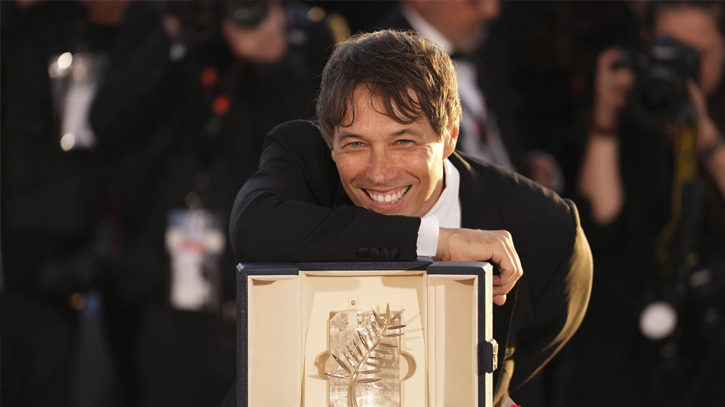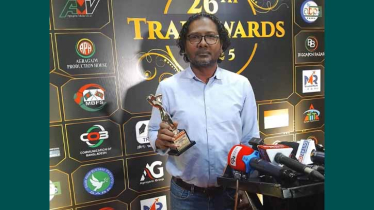
Sean Baker, winner of the Palme d’Or. Photo: Collected
Sean Baker's "Anora," a comic but devastating Brooklyn odyssey about a sex worker who marries the son of a wealthy Russian oligarch, won the Cannes Film Festival's top award, the Palme d'Or.
The win Saturday for "Anora" marked a coronation for Baker, the 53-year-old indie filmmaker of "The Florida Project " who used iPhones to make his 2015 film "Tangerine." It's also, remarkably, the fifth straight Palme d'Or won by specialty distributor Neon, following "Parasite," "Titane," "Triangle of Sadness" and last year's winner, "Anatomy of a Fall." Baker accepted the prize with his movie's star, Mikey Madison, watching in the audience at the Cannes closing ceremony.
"This, literally, has been my singular goal as a filmmaker for the past 30 years, so I'm not really sure what I'm going to do with the rest of my life," said Baker, laughing.
But Baker, the first American filmmaker to win the Palme since Terrence Mallick in 2011 with "The Tree of Life," quickly answered that his ambition would remain to "fight to keep cinema alive." The director said the world needed reminding that "watching a film at home while scrolling through your phone, answering emails and half paying attention is just not the way — although some tech companies would like us to think so."
"So I say the future of cinema is where it started: in a movie theater," said Baker, who dedicated his award to all sex workers "past, present and future."
The awards were chosen by the nine-member jury led by Greta Gerwig, who told reporters she was "forever changed as a filmmaker because of this experience." Gerwig praised "Anora" as having the feeling of classical cinema, saying it felt like an Ernst Lubitsch or Howard Hawks film that lead in unexpected directions.
While "Anora" was arguably the most acclaimed film of the festival, its win was a slight surprise. Many expected either the gentle Indian drama "All We Imagine As Light" or the Iranian film "The Seed of the Sacred Fig" to win. Both of those films also took home prizes.
It wasn't the only jolt of the closing ceremony, though. Before George Lucas was given an honorary Palme d'Or, his old friend and sometimes collaborator Francis Ford Coppol a appeared to present it to him, reuniting two of the most pivotal figures of the last half-century of American moviemaking. Coppola, who earlier in the festival premiered his self-financed sci-fi epic "Megalopolis," called him his "kid brother." Lucas called Coppola "a big friend and a brother and a mentor."
"I'm just a kid who grew up in a vineyard in Modesto, California, who makes movies in San Francisco, with my friend Francis," said Lucas. "It's definitely a different world. I've actually never made a film in Hollywood as a director."
"All We Imagine As Light," about sisterhood in modern Mumbai, won the Grand Prix, Cannes' second-highest honor. Payal Kapadia's second feature was the first Indian in competition in Cannes in 30 years.
Afterward, Kapadia urged a wide understanding of Indian cinema, saying "there's amazing work going on in our country."
Messenger/Sumon








